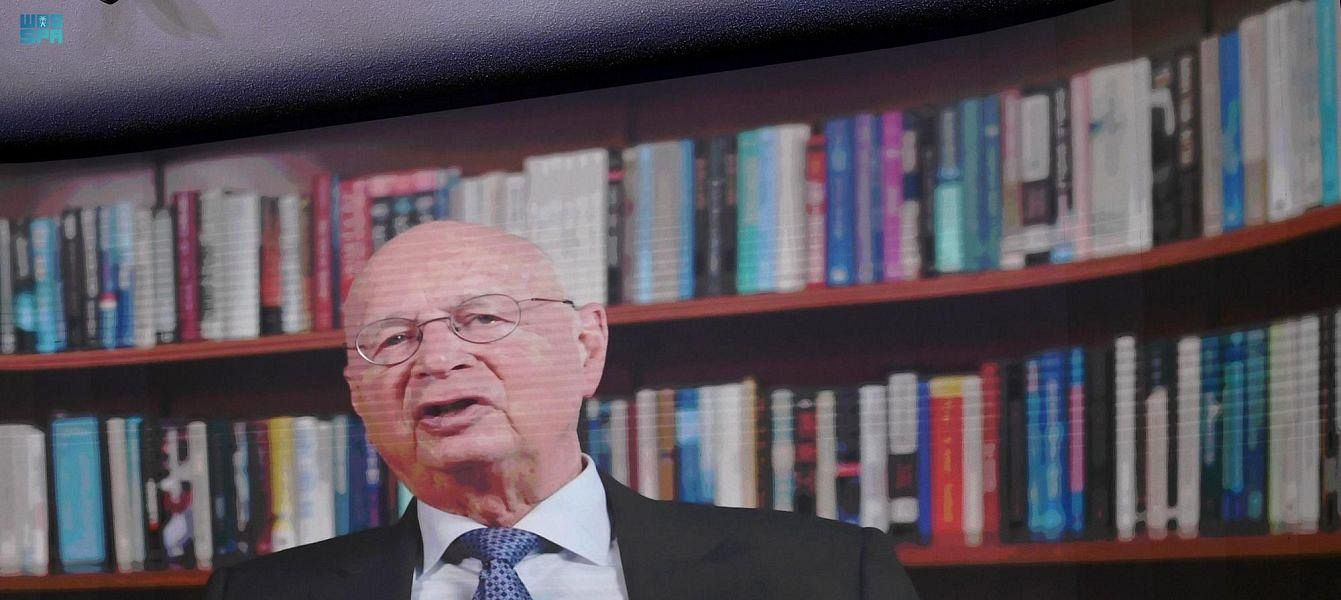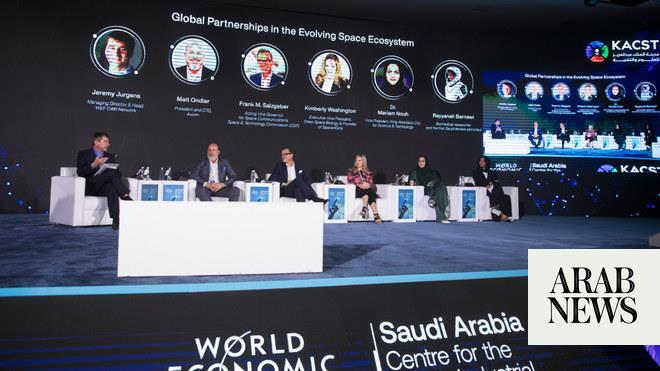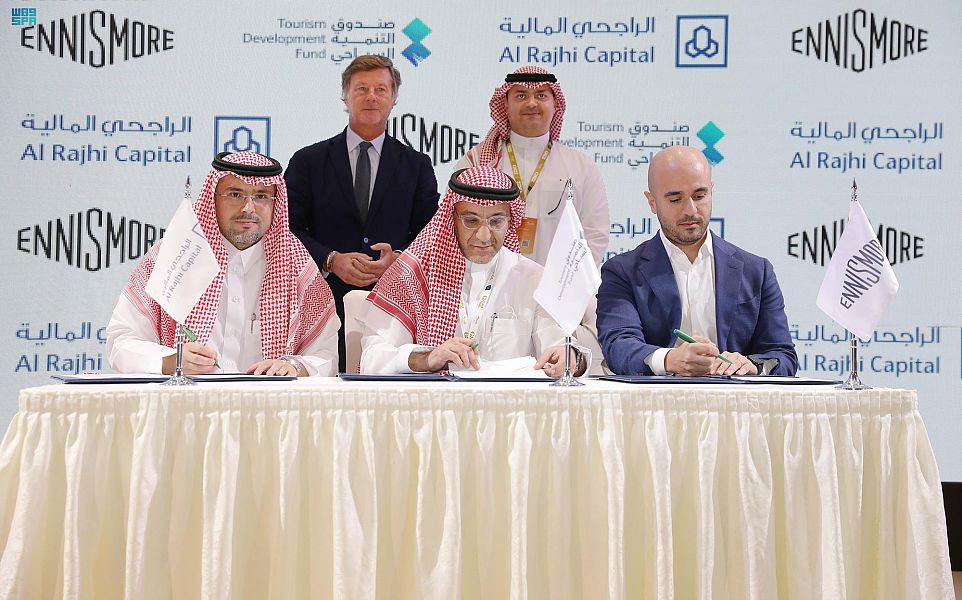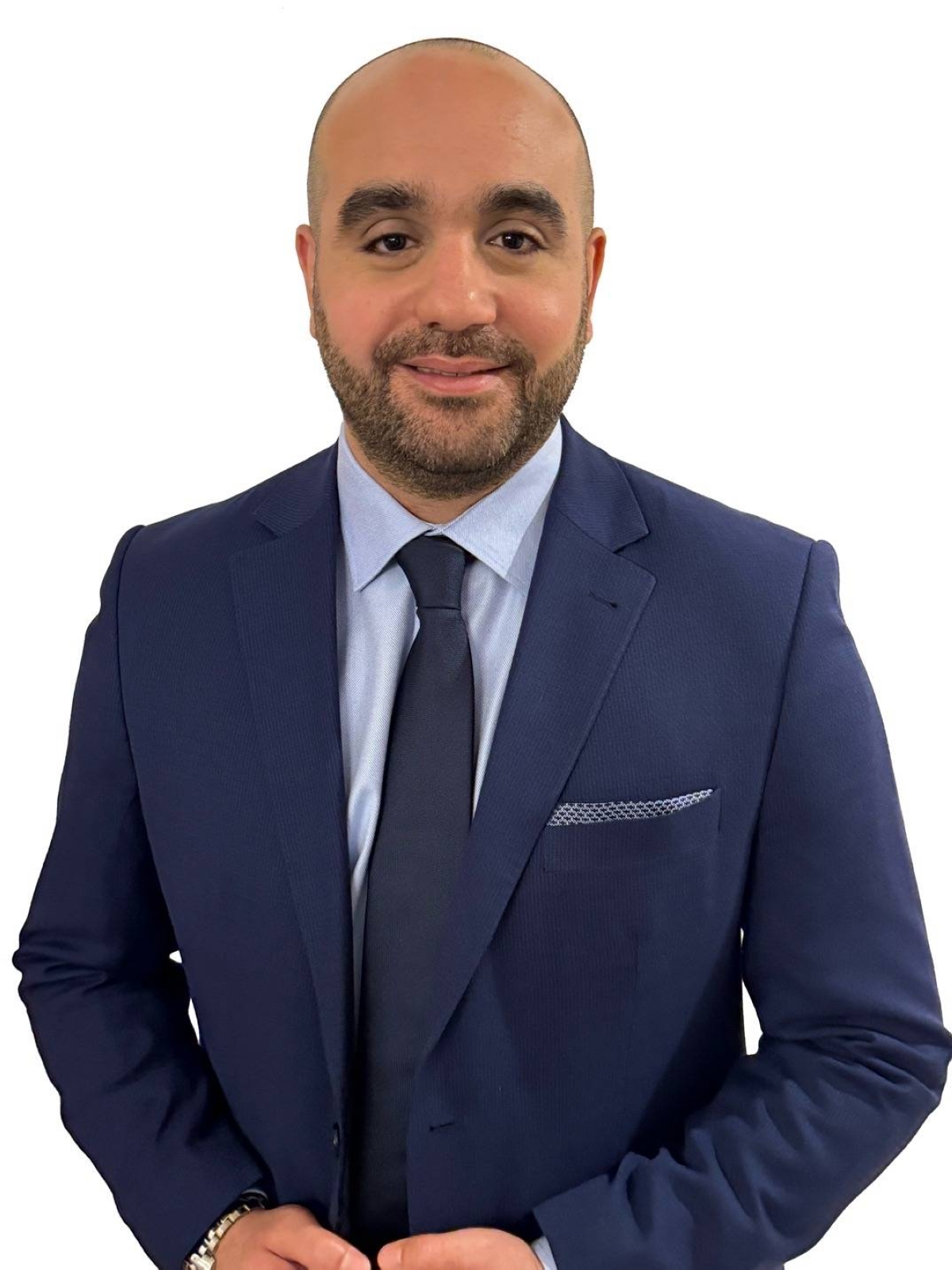
Riyadh, July 28, 2021, SPA -- Chairman of the Board of Directors of King Abdulaziz City for Science and Technology (KACST) Eng. Abdullah Amer Al-Sawahah announced today the inauguration of the 4th Industrial Revolution Center in partnership with the World Economic Forum (WEF).
This was on the sidelines of the first Saudi Forum for the 4th Industrial Revolution, which is organized by KACST at its headquarters with the participation of the founder and Chairman of the Board of Directors of the World Economic Forum, Professor Klaus Schwab, a number of ministers and officials, and a group of local and international speakers.
The inauguration of the center comes within the support and empowerment of research, development, and innovation system in Saudi Arabia by the Custodian of the Two Holy Mosques King Salman bin Abdulaziz Al Saud, and His Royal Highness Prince Mohammed bin Salman bin Abdulaziz, Crown Prince, Deputy Prime Minister and Minister of Defense.
Eng. Al-Sawahah pointed out that the flexibility and speed in setting policies and regulation is a key element to move forward in the 21st century, citing Saudi Arabia's experience in "THE LINE" project in NEOM, which was announced by HRH the Crown Prince. He considered what is happening in NEOM today is the largest innovative platform for planning urban models and future cities for the next 150 years.
For his part, the founder and Chairman of the Board of Directors of the World Economic Forum, Professor Klaus Schwab, congratulated Saudi Arabia on inaugurating the 4th Industrial Revolution Center, which aims to harness new technologies with the best principles of flexible governance, which need government, business, and civil society together to make technology a force for good and ensure that society benefits from it.
The President of KACST, Dr. Munir bin Mahmoud El-Desouki indicated that our country needs cooperation and coordination efforts in the public, private and non-profit sectors and open channels of dialogue to increase awareness about the fourth industry and identify potential risks.
He also said that Saudi Arabia has a solid economic base to build on, through recent reforms to the governance model and the establishment of new entities such as the Saudi Data and Artificial Intelligence Authority (SDAIA), the National Cybersecurity Authority, the Digital Government Authority, and the Research, Development, and Innovation Authority.
The forum began with the first session, which discussed "Harnessing the techniques of the Fourth Industrial Revolution to serve the development and the application of flexible governance between the government, business sector, and civil society.
President of the Saudi Data and Artificial Intelligence Authority (SDAIA), Dr. Abdullah bin Sharaf Al-Ghamdi, said in the session that the national strategy for data and artificial intelligence that will enhance the use of artificial intelligence in the Kingdom and will increase the number of startups companies in this field and the speed of development and acceleration that drives technology applications, and enhances the development of our infrastructure.
In the second session, which discussed “Enabling Fourth Industry Techniques for Industrial Transformation and Increased Productivity, Sustainability, and Innovation”, The Minister of Industry and Mineral Resources Bandar bin Ibrahim Al-Khorayef pointed out that the Kingdom’s Vision 2030 revolves around growth and diversity, and the Ministry is working to use the techniques of the Fourth Industrial Revolution to enhance this growth, and achieving great leaps for the industrial and mining sectors to enjoy their full economic potential.
Al-Khorayef stated that all our industrial and metal services are carried out through a unified platform that simplifies and speeds up the investor’s journey, through the Kingdom’s possession today of a strong industrial base that includes more than 10,000 factories and 40 specialized and integrated industrial cities. He stressed that all these efforts will help the manufacturing and mining sectors in comprehensive growth and it will create excellent opportunities in these sectors for entrepreneurs and small and medium-sized companies to be the primary beneficiaries of these efforts.
The third session discussed “Shaping the future of transportation and enacting policies to avoid obstacles to self-driving vehicles and drones,” in which the Minister of Transport and Logistics, Eng. Saleh bin Nasser Al-Jasser said that National Strategy for Transport and Logistics, which was recently launched by His Royal Highness the Crown Prince, and it has adopted advanced technologies as one of its main aspirations, to achieve the sector's goals and to place the Kingdom in a global logistics center to enhance the quality of life for citizens and expatriates.
Engineer Al-Jasser reviewed future transportation conditions, such as self-driving vehicles and drones, expecting participatory transportation to grow rapidly in the next decade.
In the fourth session, which discussed “Using Fourth Industrial Revolution Techniques to Build Health Systems Capable of Facing Future Crises”, the Minister of Health, Dr. Tawfiq bin Fawzan Al-Rabiah, stressed that the new reality of health care requires redesigning care systems to embrace large-scale integrated care networks that focus on patient satisfaction and to provide coordinated and consistent services, indicating that the integration of digital and biological systems will increase the level of health care provision.
Dr. Al-Rabiah explained that many healthcare providers have confirmed the capabilities of telemedicine to monitor and treat patients remotely via sensors and medical devices.
It is noteworthy that the first Saudi Forum for the Fourth Industrial Revolution will continue tomorrow with four sessions discussing clean-energy transformations, building smart cities for the future, restoring the ecosystem, and the future of finance.
--SPA
00:51 LOCAL TIME 21:51 GMT
0002
www.spa.gov.sa/w1593993












